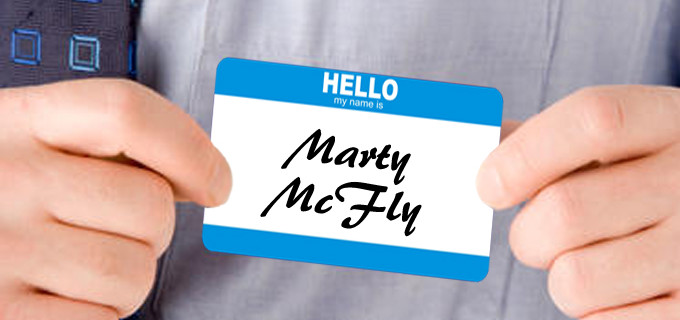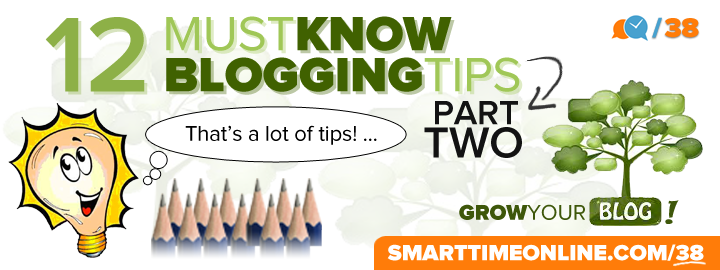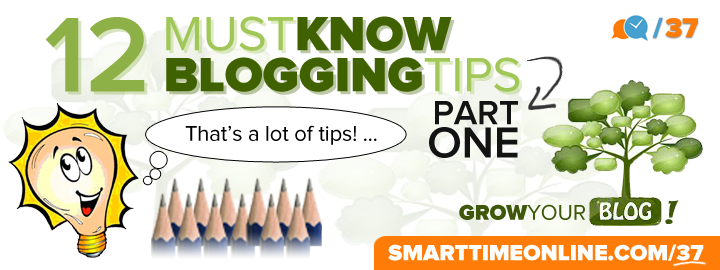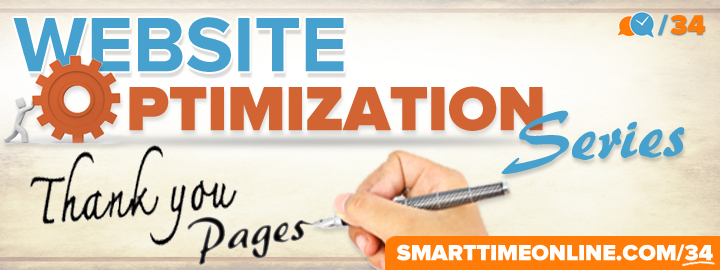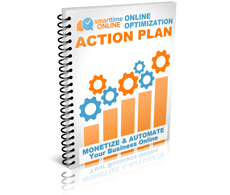Rejoice! You can now use whatever name you’d like to on Google Plus – be it alias, company or brand name. In their recent policy shift announcement, Google apologized for the bad experience some users have had with their names policy: “When we launched Google+ over three years ago, we had a lot of restrictions on what name you could use on your profile. This helped create a community made up of real people, but it also excluded a number of people who wanted to be part of it without using their real names. Over the years, as Google+ grew and its community became established, we steadily opened up this policy, from allowing +Page owners to use any name of their choosing to letting YouTube users bring their usernames into Google+. Today, we are taking the last step: there are no more restrictions on what name you can use. ” Read their entire post about this change here. As a user who has had personal trouble with this name policy for a simple typo, this comes as a welcomed change – even for me. The question (and speculation) is: will Facebook follow suite? Facebook CEO Mark Zuckerberg said in an interview with Bloomburg News in January 2014, “I definitely think we’re at the point where we don’t need to keep on only doing real identity things. If you’re always under the pressure of real identity, I think that is somewhat of a burden.” I had always guessed it would be Facebook loosening this noose before Google… but alas, as my wife tells me – I’m not always right. 🙂 [smartcast] Should You Change Your Google Plus Name? As with anything we do online, authenticity goes a long way. Ultimately, the real difference between most bloggers and their content/value is them – their own personality and identity. As humans, we like to connect with other humans. If you’ve already established that relationship – don’t change it. So, what if you have a brand that people are attached to? Well, the same holds true – the difference is that your brand holds it own personality. If this is the case, I would create a matching Google Plus page and move forward with...
Read Morehttp://traffic.libsyn.com/smarttimeonline/sto38.mp3 Click here to subscribe to the ‘Smart Time Online Podcast’ in iTunes Note: This episode and show notes page is Part Two of a two-part episode series on must-know blogging tips. If you have not yet listened to Part One, I recommend you do so by clicking here. In Part One of this two-part blogging tips series, you learned about why having a blog is one of the most important digital assets any business could have. Whether you run an e-commerce website, host a podcast or simply run a content-based website – a blog is an absolute must, as it is an asset owned solely by you with which you have full control over. I have met too many “business owners” who have a MASSIVE following on social media sites like Facebook, Twitter and Instagram, but have no website and of course – no blog. It completely baffles me. Facebook (who owns two of the social media sites I just mentioned) has been known to pull the rug from beneath the feet of its users (this has happened on multiple occasions), and although I do believe they are genuinely trying to better the overall network while remaining a profitable and viable business, you simply cannot rely on other companies platforms. Too much is at stake – you must have your own blog. In this episode of the Smart Time Online podcast, I reveal the last 6 of the 12 must-know blogging tips to help you grow and leverage this ever-important digital asset. http://traffic.libsyn.com/smarttimeonline/sto38.mp3 IN THIS EPISODE, YOU’LL DISCOVER: Why having a social media marketing strategy is one of the most important must-know blogging tips. The one thing you must do immediately to future-proof your blog, grow the value of your digital assets, and increase conversions across the board. Why segmentation is vital to increasing your bottom-line (real-world example: this tip has made our fitness blog $300 today alone – literally, on the day this is being written. The day is only half-way over). How to leverage other people’s digital assets (email lists, blog audience, social media followers, etc.) and quickly go from zero to hero (if done right). The highest income-leveraged page of any blog, and why you should...
Read Morehttp://traffic.libsyn.com/smarttimeonline/sto37.mp3 Click here to subscribe to the ‘Smart Time Online Podcast’ in iTunes Late in 2013, Facebook rolled out an update that affected millions of business owners who have Facebook Pages. The update significantly reduced organic reach and therefore engagement and conversions greatly suffered. For a time afterwards, the solution seemed to be a $5 bill – creating a growing resentment towards Facebook among businesses who leverage Facebook for marketing purposes. Unfortunately, this was a rude wake-up call for many people. You simply do NOT own anything you’ve created or built on Facebook (or any other platform), and that’s a fact. Another fact is, we absolutely DO own our own websites and the content that we publish on our blogs. I stand to reason that a blog is one of the most important digital assets of any business. Whether you run an e-commerce website, host a podcast or own a content-based website – a blog is a crucial part of your marketing plan. While we should not ignore the marketing opportunity on Facebook (it stands as one of the biggest income producers for both me and my clients), your blog, ultimately, will always be your own asset. And based on Facebook’s track-record, it’s only a matter of time before another radical change is made again. In this episode of the Smart Time Online podcast, I reveal the first 6 of the 12 must-know blogging tips to help you grow and leverage this ever-important digital asset. http://traffic.libsyn.com/smarttimeonline/sto37.mp3 IN THIS EPISODE, YOU’LL DISCOVER: How to build more authority, value and ultimately sales through your blog. Why it’s so important to know your customer avatar, and how this alone can mean success or failure with monetizing your blog. Why “mapping out” your blog posts is critical for ensuring consistency and ultimately goal conversions, and what my personal strategy is. The 1 keyword research blogging tip that can help boost your organic search engine rankings significantly – and this doesn’t involve installing a plugin. BUT, I also reveal how to utilize, what I feel is, the number 1 Search Engine Optimization plugin for WordPress. Why images and graphics are so important for grasping readers attention, and how you can utilize them to both educate and state...
Read Morehttp://traffic.libsyn.com/smarttimeonline/sto34.mp3 Click here to subscribe to the ‘Smart Time Online Podcast’ in iTunes Very recently, I was working later than usual to finish up some last-minute client stuff and decided to run over to a local fast-casual drive through for a quick salad. My wife wasn’t feeling well and was down for the count, so I drove alone. It had rained all evening… the roads were wet and of course it was dark out, so I decided to take it slow and brainstorm some ideas for my next few podcast episodes. By the time I arrived at the place I was grabbing a salad from, I wasn’t quite satisfied with my ideas… I was having “podcasters’ block”. Pulling into the drive-through, I took a reprieve from the brainstorming session and focused my attention on what toppings I wanted on my salad and whether I wanted to add a side of their delicious fresh-cut, all-natural fries to my order. I don’t know about you, but when I’m really hungry and my brain knows that I’m about to eat what my body is craving, I get all excited and giddy. My excitement was soon met with a lady’s voice on the other end of the speaker, who told me to go ahead with my order. The cravings-excitement grew – I was about to order just what I wanted! I put my order in, and was abruptly told to drive up. “Did I customize my order too much? She sounds irritated” I thought while creeping up to the window. Oh well – maybe when I pull up, she’ll turn out to be a nice person who loves her job working late night drive-through. Boy, was I was wrong. The entire transaction took place without even a hint of a smile, not even a slightly nice tone in her voice, and without a single “thank you.” Forget asking me if I wanted to add in a milkshake or a pair of cookies to my order. I actually pulled away quite appalled … and thus the idea for this episode was born. See, while pulling away, I realized that in real life, we expect so much to have pleasant experiences at the places we visit....
Read Morehttp://traffic.libsyn.com/smarttimeonline/sto33.mp3 Click here to subscribe to the ‘Smart Time Online Podcast’ in iTunes In 2012 and 2013, Google alone rolled out over 60 algorithm changes and data refreshes – the biggest update being Penguin 2.0. This impacted billions of search queries and with that, website visitor numbers and revenue for many website owners. Essentially, Google has become smarter at ranking websites with regard to search term relevancy and it’s important that you stay on top of the changes and best practices that will ultimately cement your online business into a reliable SEO foundation. In this episode of the Smart Time Online podcast, I talk about the 4 SEO pillars and SEO’s current state. IN THIS EPISODE, YOU’LL DISCOVER: The 4 SEO Pillars and how you can tackle 3 of them with just ONE practice. Why ______ and _______ is absolute key for long-term SEO success. The one thing you should have in place to make sure you stay on top of your ‘SEO game’. The one thing you should NOT be doing (and why doing so could harm your websites standing with Google and other search engines). How to properly structure “how-to” articles so they are useful, shared socially and recognized by search engines. The ONE thing you should do this week to best leverage your websites search engine optimization. ACTION STEPS: Start with content. How are you producing content? Is your reader first in mind, or is SEO? Your reader should be your NUMBER ONE focus. Produce relevant, high-quality, engaging and helpful content by always considering how your content will support your audience. Create a content publishing schedule to help stay organized, consistent and disciplined with your content. A simple spreadsheet or Word document would suffice for this. Reach out to big websites within your market and offer content to them. Take 5 minutes to craft a personal email, and do this at least 3-5 times per week. Optimize your websites load time and code structure. You can check for errors using the W3C Markup Validation Tool found at http://validator.w3.org/. Hire a website conversion and optimization specialist to help you create and execute a website optimization plan. Would you like some 1-on-1 help? Click here RESOURCES AND LINKS MENTIONED IN...
Read More
